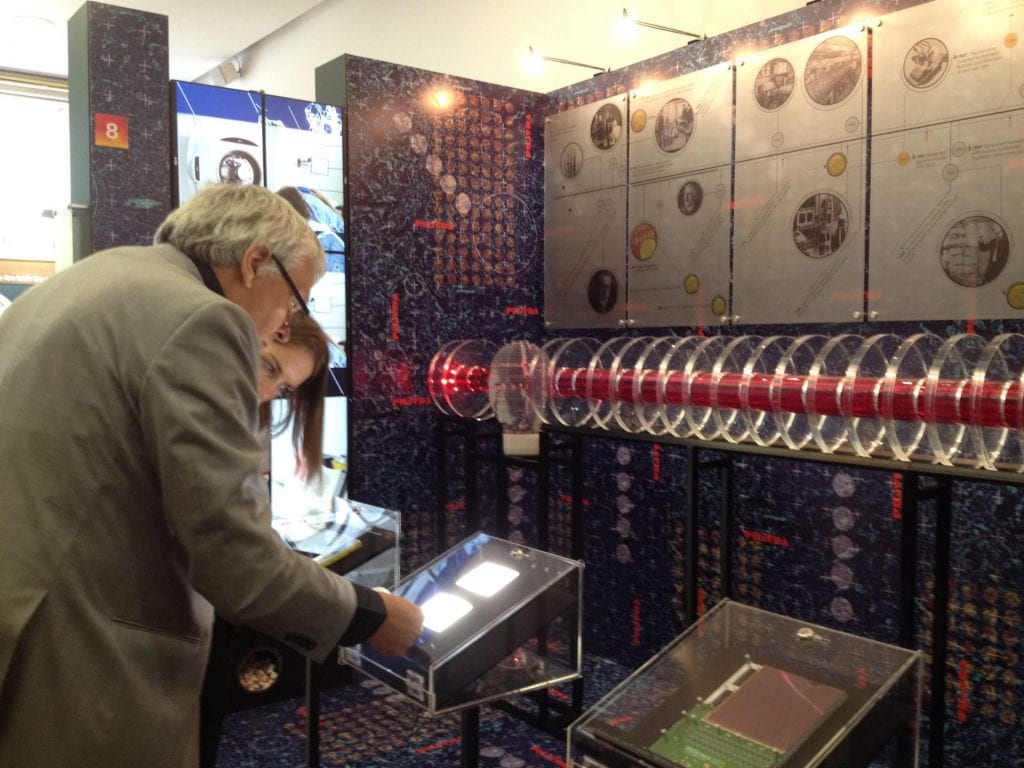An international research team developing world-first technology for use in cancer treatment, using proton beams to localise treatment and cause less damage to healthy tissue, has won a global competition recognising the best innovations in engineering, science and technology.
The consortium of researchers led by Professor Nigel Allinson MBE from the University of Lincoln, UK, received a prestigious Institution of Engineering and Technology (IET) Innovation Award.
The team behind the PRaVDA project was named as the winner in the Model-Based Engineering category for its Proton CT ‘Seeing cancer during proton therapy’ innovation.
The PRaVDA innovation will assist radiotherapists by helping them to achieve accurate proton CT images. Over half of all cancer patients receive radiotherapy as part of their curative treatment, and most radiotherapy is delivered using high-energy external beams of x-rays. Proton beam therapy, however, uses a different type of beam to conventional radiotherapy. It uses a high-energy beam of protons. Like x-rays, protons can penetrate tissue to reach deep tumours. However, compared to x-rays, protons cause less damage to healthy tissue in front of the tumour, and no damage at all to healthy tissue lying behind, which greatly reduces the side effects of radiation therapy.
Professor Allinson, Distinguished Professor of Image Engineering in Lincoln’s School of Computer Science, said: “We are really pleased to have won this award – it’s great to receive such recognition from a global institution as renowned and long-running as the IET. Hopefully this award will mean that we can continue to provide accurate cancer treatment for more and more patients.”
He added: “We are mid-way through our three-year project to create world-first technology which will make proton therapy a viable treatment option for many more cancer patients. With two new government-funded proton therapy centres due to open in the UK by 2018, and the number of centres worldwide expected to double in the next decade, PRaVDA has the potential to make a profound contribution to the global fight against cancer.”
Professor Allinson heads the PRaVDA project team, which also includes the University of Birmingham, University of Liverpool, University of Surrey, University of Warwick, University of Cape Town, University Hospital Birmingham NHS Foundation Trust, University Hospital Coventry and Warwickshire NHS Trust, The Christie NHS Foundation Trust and United Lincolnshire Hospitals NHS Trust.
William Webb, IET President, said: “The IET Innovation Awards celebrate the best in global innovation, highlighting the rapid and exciting pace of development in today’s engineering and technology industry. Congratulations to the team for their win. They were selected from a highly impressive set of global innovations as one of the most forward-thinking, pioneering innovations in the field.
“These awards are part of the IET’s mission to inspire engineering excellence, which last year provided over £500,000 to celebrate excellence and research in the sector and inspire the next generation of engineers and technicians. Our awards recognise and reward the industry’s elite, from apprentices and technicians at the start of their careers, through to senior established professionals.”
The awards took place in London on 19th November 2014 and were hosted by TV presenter Kate Russell. For more information on the IET Innovation Awards, visit:http://conferences.theiet.org/innovation/ceremony/index.cfm
